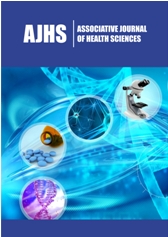- Submissions

Abstract
Associative Journal of Health Sciences
Predictors of Receiving the HPVVaccination Among University Students
-
Open or CloseTina M Penhollow1*, Michael Hall1 and Michael Young2
1Department of Exercise Science and Health Promotion, Florida
2CEO Center for Evidence Based Programming, Florida
*Corresponding author:Tina M Penhollow, Department of Exercise Science and Health Promotion, Florida
Submission: October 09, 2019;Published: October 17, 2019

Abstract
Introduction: The Human papillomavirus (HPV) is the most common sexually transmitted infection (STI) in the United States. The HPV vaccine is a common and popular way to effectively reduce the chances of being infected. The purpose of the study was to identify variables which distinguished between college students who received the HPV vaccine and those who did not receive the vaccine.
Methods: Students from one university in the southeastern United States was employed as the study sample. Participants completed a questionnaire that included items designed to elicit information concerning demographics, sexuality, religiosity, as well as knowledge and behaviors about the HPV vaccine. Data were analyzed using SPSS programs.
Results: Frequency counts, confirmatory factor analysis, and multivariate logistic regression analyses were conducted on the data. Total participants in the research were N=257 (females n=194; males n=63). Nearly half of the sample had received the HPV vaccine (n=110, 43%), more than a quarter reported not receiving the vaccine (n=87, 34%), and less than a quarter reported they did not recall whether or not they received the HPV vaccination (n=56, 23%). The top five reasons provided for choosing not to receive the HPV vaccine were: the vaccine was unnecessary, not sexually active, parent/guardian, did not want another vaccination, and belief the vaccine was dangerous. The top five reasons given for choosing to receive the vaccination were: understood the purpose, parent/guardian, thought it was safe, sexually active, and thought it was necessary. Male gender, extreme religious involvement, and Black race were the identified statistically significant variables to predict lack of receiving the HPV vaccine.
Conclusion: Our findings add to the existing body of literature in health science. Health professionals should work to develop interventions that provide education about sexual health among college students which include the benefits and risks of receiving the HPV vaccination.
Keywords: College students; Human papillomavirus (HPV); Vaccination; Religion; Sexual health
 a Creative Commons Attribution 4.0 International License. Based on a work at www.crimsonpublishers.com.
Best viewed in
a Creative Commons Attribution 4.0 International License. Based on a work at www.crimsonpublishers.com.
Best viewed in 







.jpg)






























 Editorial Board Registrations
Editorial Board Registrations Submit your Article
Submit your Article Refer a Friend
Refer a Friend Advertise With Us
Advertise With Us
.jpg)






.jpg)













.bmp)
.jpg)
.png)
.jpg)














.png)

.png)



.png)






